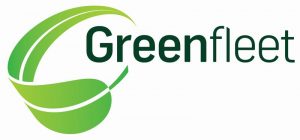Offsetting CO2 emissions through native re-forestation
 A major reason for establishing the Eltham Farmers’ Market was to help improve the environmental sustainability of our food system. As part of that, we now offset the estimated carbon dioxide emissions of the stallholders travelling to and from the market every Sunday.
A major reason for establishing the Eltham Farmers’ Market was to help improve the environmental sustainability of our food system. As part of that, we now offset the estimated carbon dioxide emissions of the stallholders travelling to and from the market every Sunday.
The word ‘local’ is an important part of our vision of what makes a food system sustainable. The more local the food is to the market, the lower the food miles and the less carbon dioxide emissions are released into the atmosphere. However, even transporting food relatively short distances to the market generates carbon dioxide emissions.
From March 2019, we have been offsetting estimated emissions generated by our stallholders travelling to and from the market. More specifically, we have partnered with Greenfleet to plant an equivalent amount of biodiverse native trees to offset the calculated CO2 emissions. The aim is to reduce the net food miles (after offsets) of the food you purchase at the market towards zero.
Here are the monthly totals for stallholder kilometres, estimated CO2 emissions, offset cost and the number of trees planted.
| Year | Month | Stallholder kilometres | Estimated CO2 emissions in tonnes | Offset cost | Trees planted |
| 2022 | March | 24,100 | 7.9 | $142 | 24-32 |
| February | 24,100 | 7.9 | $119 | 24-32 | |
| January | 22,800 | 7.5 | $112 | 22-30 | |
| 2021 | December | 27,700 | 9.1 | $136 | 27-46 |
| November | 26,600 | 8.7 | $131 | 26-35 | |
| October | 34,100 | 11.2 | $167 | 33-45 | |
| September | 26,300 | 8.6 | $129 | 26-34 | |
| August | 35,400 | 11.6 | $174 | 35-46 | |
| July | 26,300 | 8.6 | $129 | 26-35 | |
| June | 28,300 | 9.3 | $139 | 28-37 | |
| May | 36,100 | 11.8 | $177 | 35-47 | |
| April | 26,700 | 8.7 | $131 | 26-35 | |
| March | 25,500 | 8.3 | $125 | 25-33 | |
| February | 22,700 | 7.4 | $112 | 22-30 | |
| January | 23,000 | 7.7 | $115 | 23-31 | |
| 2020 | December | 24,000 | 7.8 | $117 | 23-31 |
| November | 32,000 | 10.5 | $158 | 32-42 | |
| October | 30,000 | 9.7 | $145 | 29-39 | |
| September | 27,000 | 9.0 | $135 | 27-36 | |
| August | 37,000 | 12.2 | $183 | 37-49 | |
| July | 29,000 | 9.6 | $143 | 29-38 | |
| June | 30,000 | 9.8 | $148 | 30-39 | |
| May | 38,000 | 12.5 | $187 | 37-50 | |
| April | 24,000 | 7.7 | $116 | 23-31 | |
| March | 32,000 | 10.6 | $160 | 32-43 | |
| February | 26,000 | 8.6 | $129 | 26-34 | |
| January | 22,000 | 7.2 | $107 | 21-29 | |
| 2019 | December | 32,000 | 10.4 | $156 | 31-42 |
| November | 28,000 | 9.0 | $136 | 27-36 | |
| October | 28,000 | 9.3 | $139 | 28-37 | |
| September | 30,000 | 10.0 | $150 | 30-40 | |
| August | 26,000 | 8.6 | $129 | 26-34 | |
| July | 28,000 | 9.1 | $136 | 27-36 | |
| June | 32,000 | 10.5 | $157 | 31-42 | |
| May | 30,000 | 9.7 | $145 | 29-39 | |
| April | 25,000 | 8.4 | $125 | 25-33 | |
| March | 31,000 | 10.3 | $154 | 31-41 |
Click here to see where all the stallholders are from and what distance they are travelling to get to the market. All of the stallholders are from within Victoria (or border regions in a couple of examples), with around half from within North East Melbourne (15 from Nillumbik and a further 30 from the surrounding suburbs). This is a much higher proportion of truly local stallholders than is generally achieved by other Melbourne farmers’ markets and this is because we prioritise stallholders who are truly local.
Join us in helping to make the Eltham Farmer’s Market as sustainable as possible:
- Consider walking, riding your push bike, or catching public transport to the market further reducing the food miles of the food you consume.
- Carpool with a friend / neighbour to travel to / from the market.
- Love food, hate waste – reduce the amount of food you throw out by finding creative ways to use leftovers that you might normally dispose of.
- Start a compost or worm farm to recycle your fruit and veggie scraps into beautiful soil conditioner to grow some of your own food.
- Come and share any excess produce from your garden at the Eltham Food Swap at the market on the fourth Sunday of each month.
- Join our push to reduce waste from the market by bringing reusable bags, food containers, coffee cups, plates etc for snacks.
For more information, contact Richard Rowe by email.
